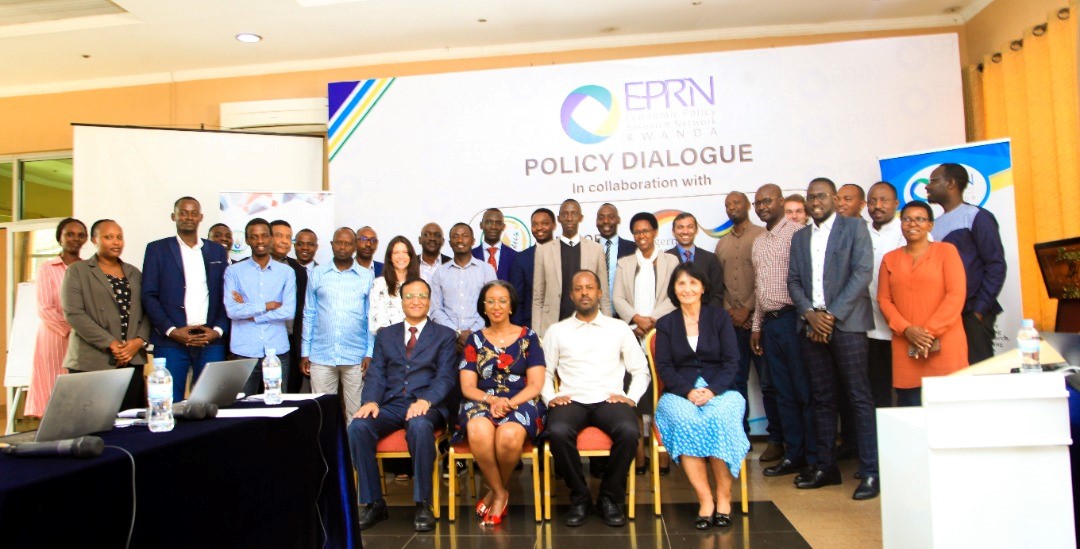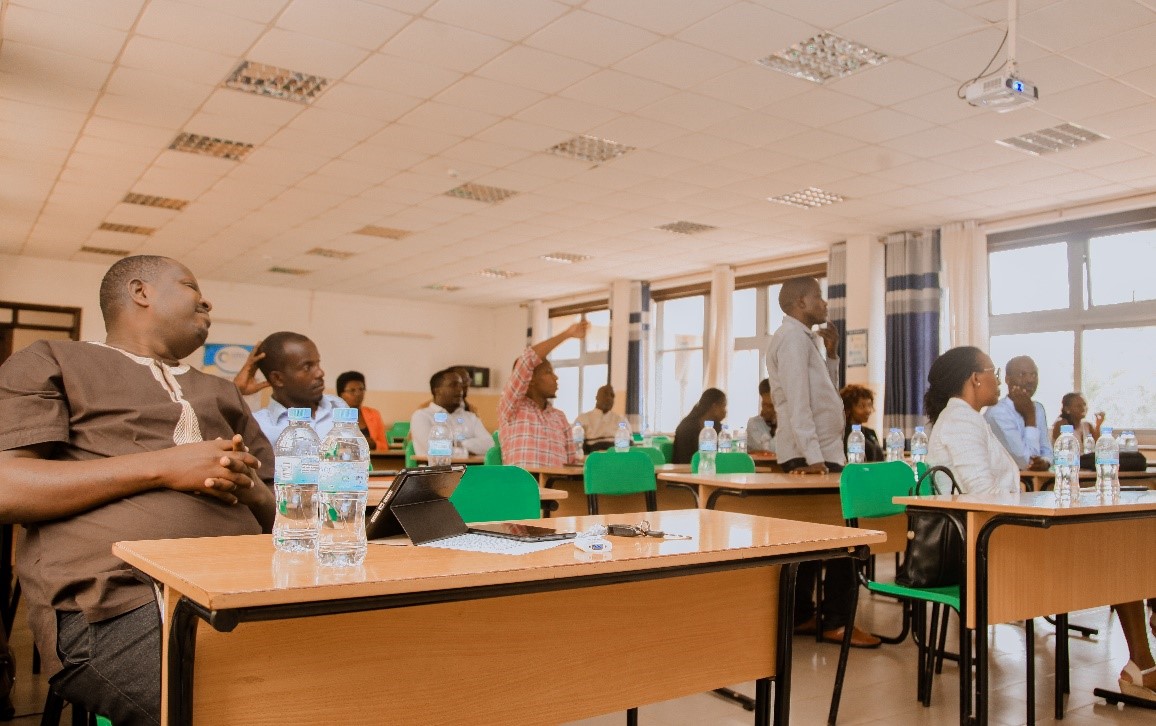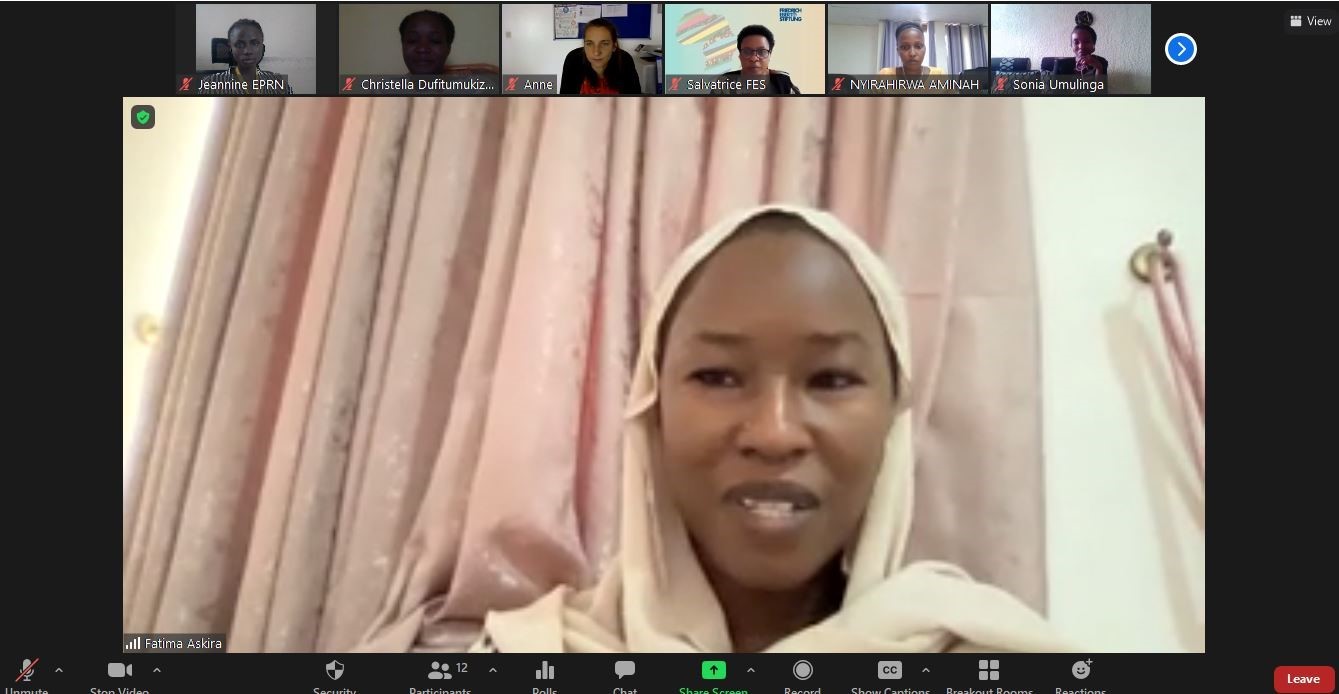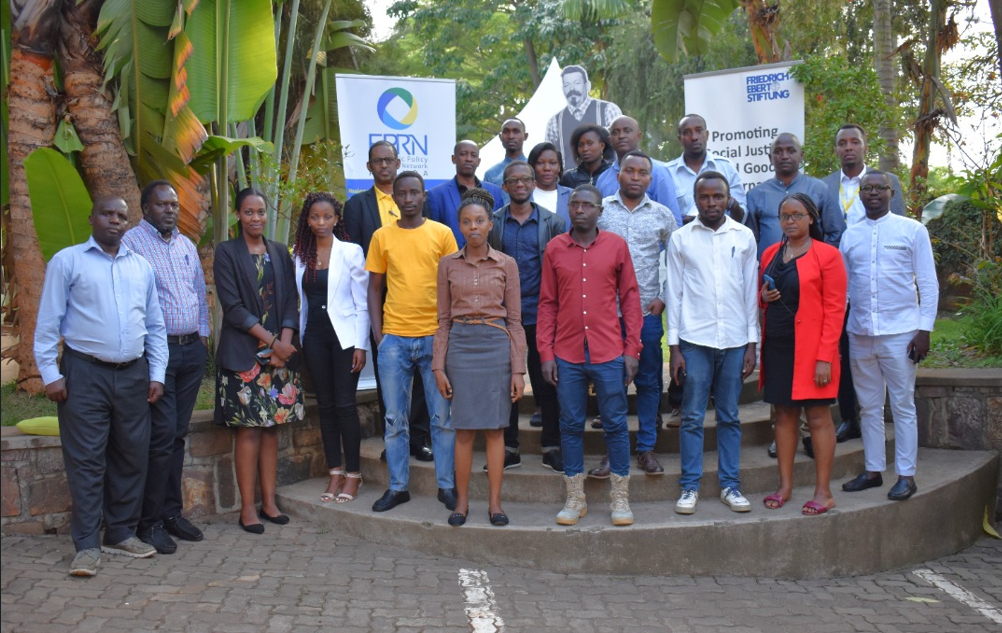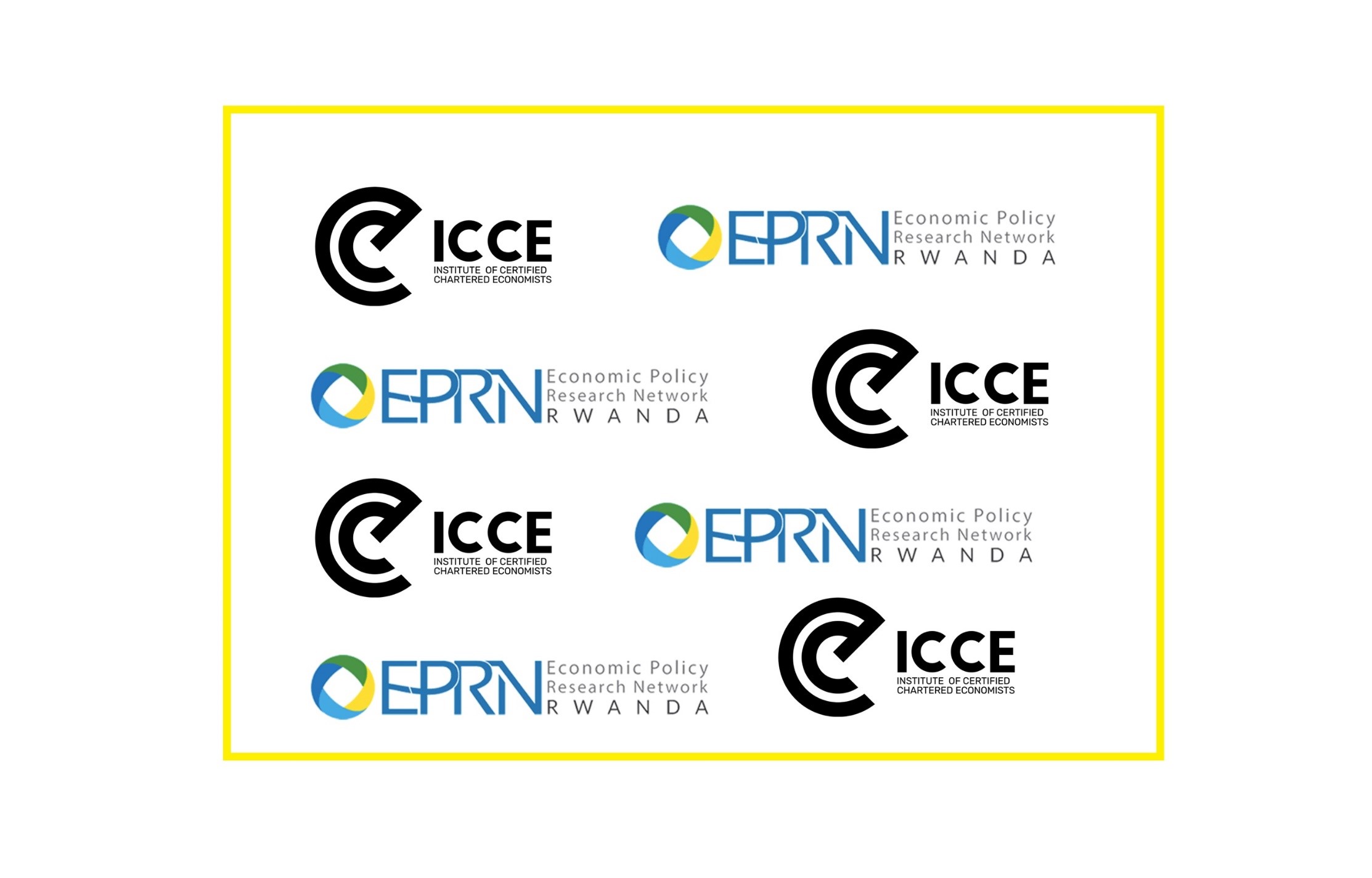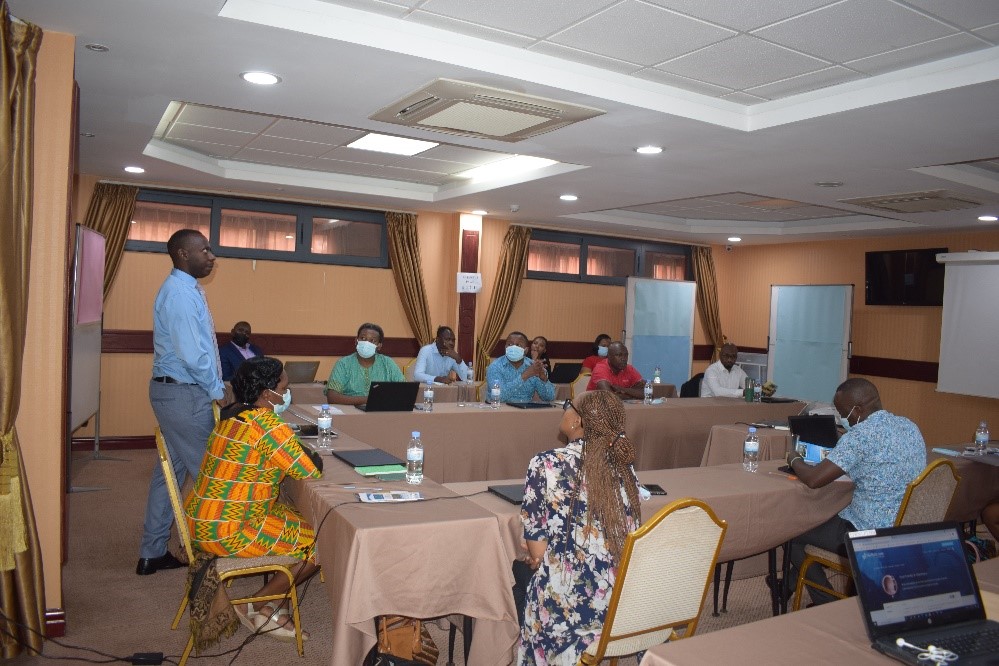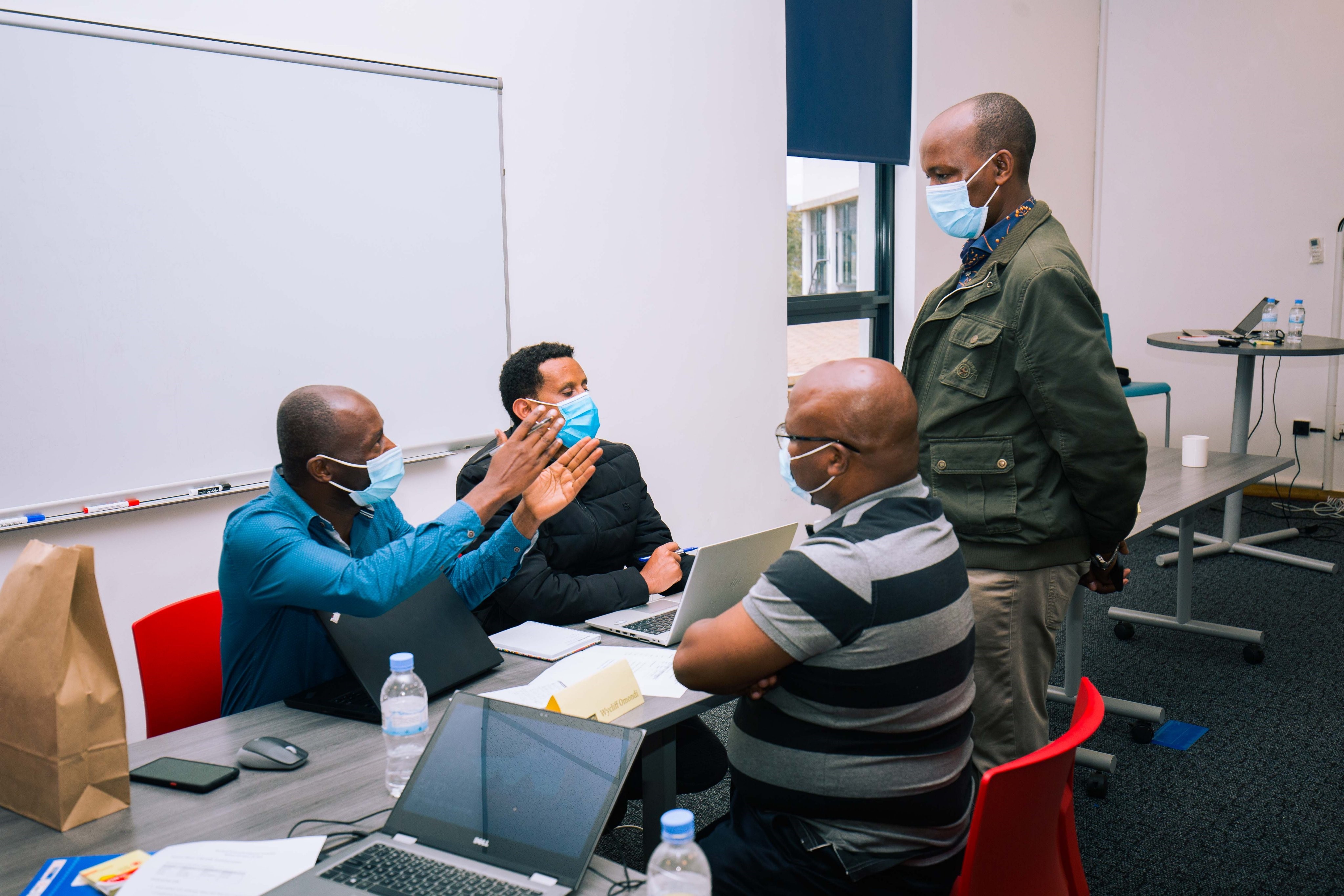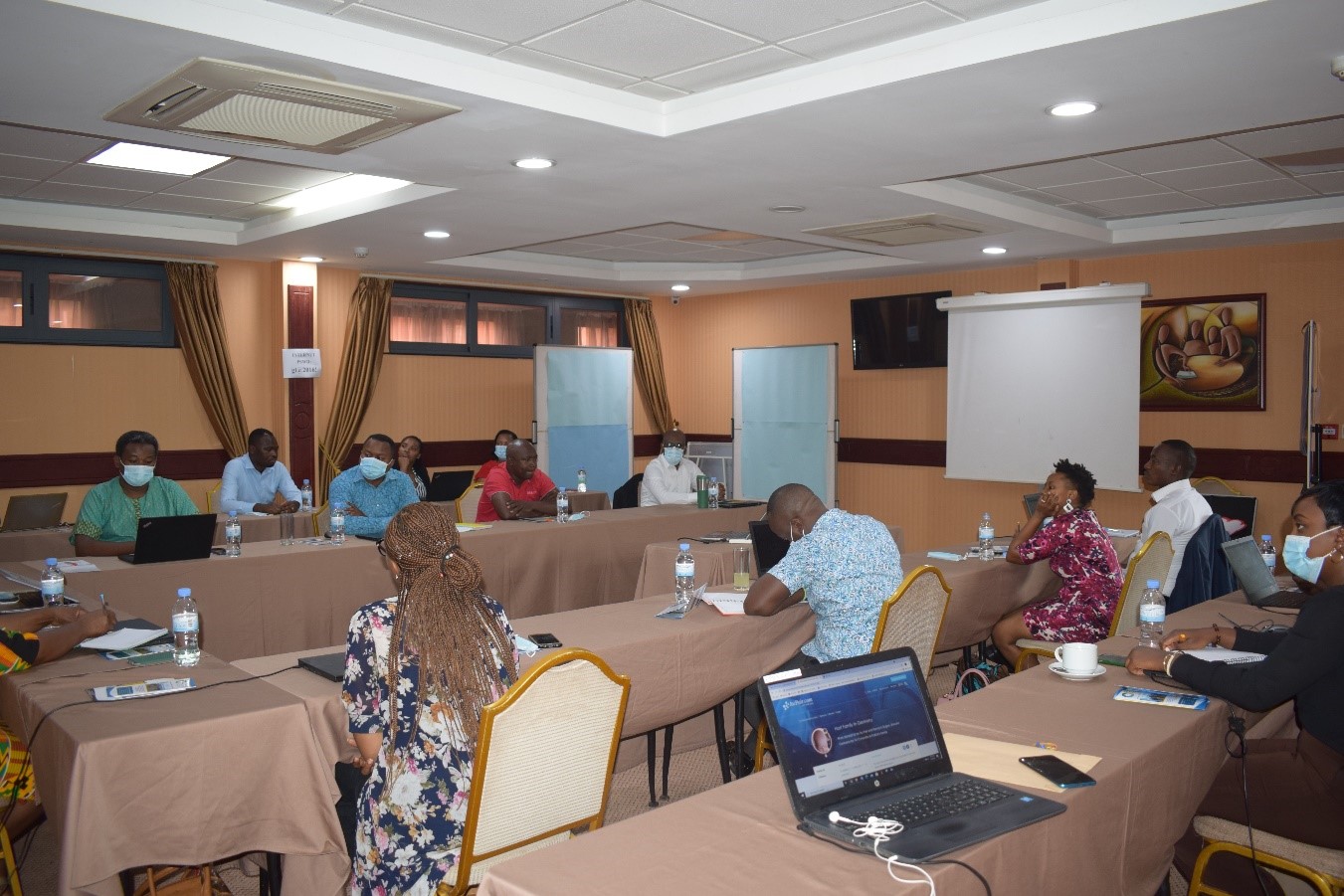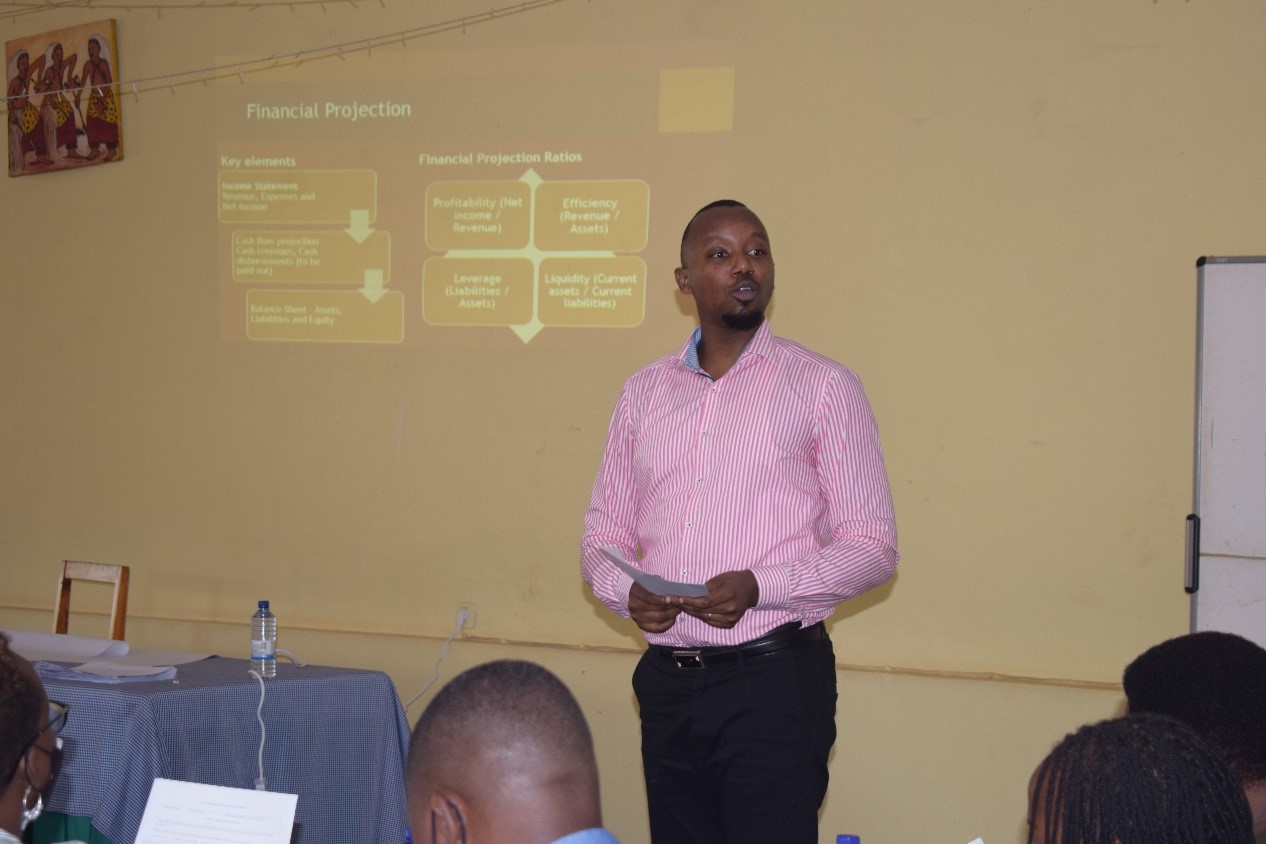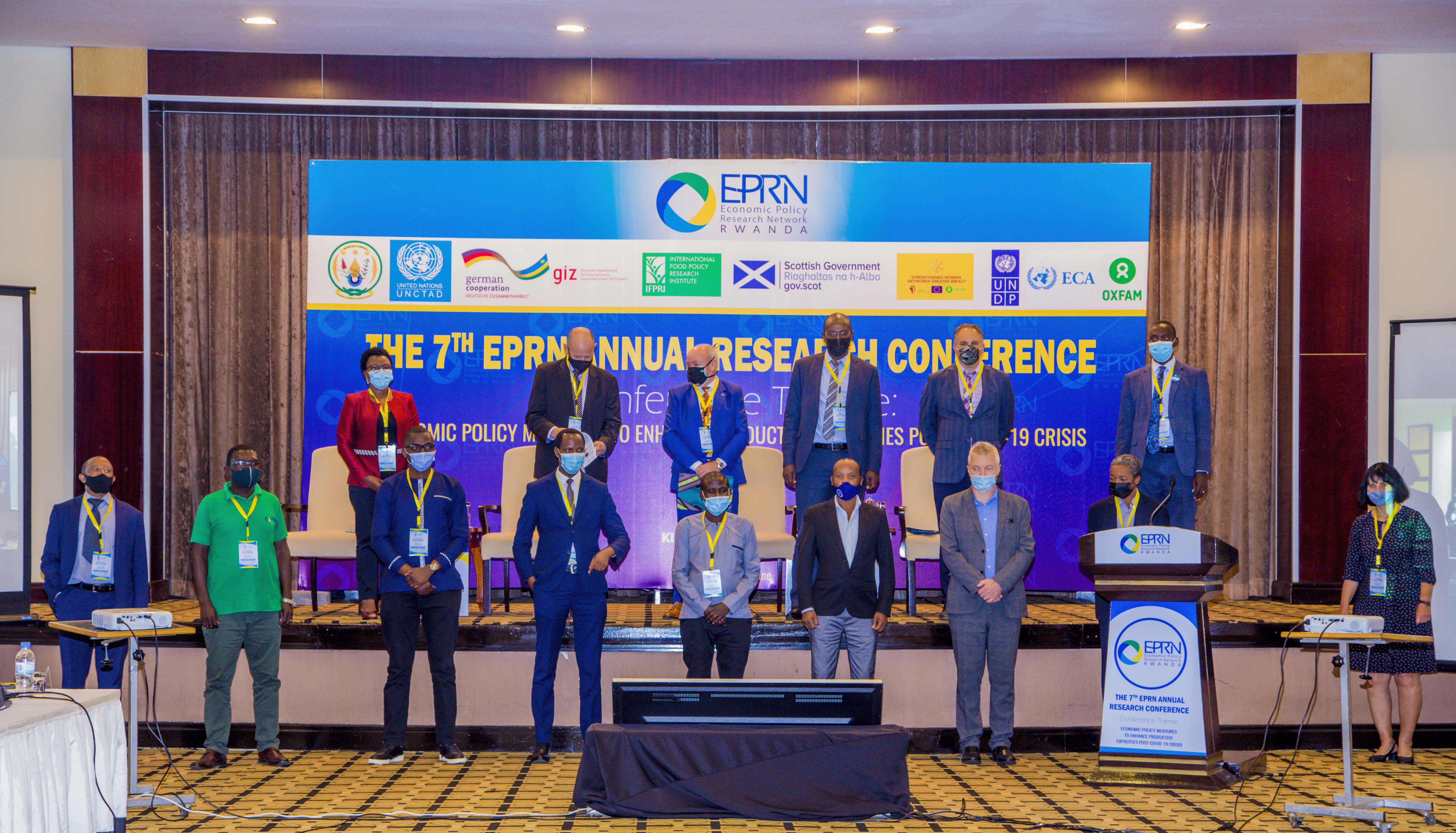POLICY DIALOGUE ON WOMEN IN HORTICULTURE VALUE CHAINS IN RWANDA
Date : 26th October 2023
Venue : Lemigo Hotel, Kigali.
1. Organising Team
The Economic Policy Research Network (EPRN) has been contracted by OXFAM to organise a policy dialogue on women in horticulture value chains in Rwanda. The dialogue will be organised in collaboration with DUHAMIC ADRI, DUTERINBERE and COCOF ; and it is scheduled on 26th October 2023 at Lemigo Hotel Kigali.
2. Background
It is known that women’s work often takes least valued parts of value chains for instance, home-based workers or informal workers more generally. Women tend to be underpaid and their (informal) jobs are less secure. In agricultural settings, women are often not visible, while they do a large part of the farm-activities. Moreover, it is well-documented that women-owned rural businesses tend to face many more constraints and receive far fewer services and support than those owned by men.
FAOs research shows that women farmers are 20- 30 percent less productive than men, but not because they manage their farms less well, or work less hard. The main reason for the gap between men’s and women’s performance is that the farmers have access to resources seldom available to female farmers – including land, financing and technology, among other things. In addition, women do not share fairly in benefits such as training, information, and knowledge. But if women had the same access to those resources as men, they would produce 20-30 percent more food and their families would enjoy better health, nutrition and education. If women had equal access to agricultural resources and services, food security would be greatly improved and societies would grow richer, and not only in economic terms. (FAO at work 2010-2011).
Rwanda is focusing on developing agricultural exports through supporting the increased productivity & quality of prioritized agri-export value chains. The National Agricultural Development Export Board (NAEB) has committed to reach USD 1 billion by the end of 2024 with USD 205 million (or 21%) Horticulture share. Rwanda Strategic Plan for Agricultural Transformation (PSTA 4) focuses on facilitating private sector investment in fruits and vegetable production though upgrading provision of SPS/quality standards as well as supporting demonstration of better technologies such as green houses, hydroponics, and other small-scale irrigation solutions. Fruits and vegetables are produced on small plots of land and by small farm households and small and medium enterprises. For instance, fruits and vegetables covered an estimated 1.18% and 0.47% of the aggregate land occupied by all crops in Season A 2020 compared to 1.14% and 0.63% and 6.0% of the previous Season A 2019 (NISR, 2018). However, the recent agricultural household survey 2017 revealed that the horticulture production at household levels was still critical as the proportion of vegetables and fruits producing households were down compared to other crops (3.1%) and 0.5% in season A and (3.7%) and (0.6%) in season B of households respectively) (NISR, 2018).
1.1 About Organizations
Oxfam is global movement of millions of people working together to end poverty. Oxfam believes that the potential of the lasting change lies in the hands of millions of women currently living in poverty, that is why we put women’s rights at the heart of everything we do. While DUHAMIC ADRI, COCOF and Duterimbere ONG are local non- government organizations Non-profit making Organization governed by Rwandese Law aimed at assisting farmers in organizing themselves in their fight against constraints related to rural areas marginalization.
1.2 Sustainable horticulture value chains project.
Oxfam Rwanda in partnership in collaboration with other partners namely DUHAMIC ADRI, COCOF and DUTERIMBERE NGOs is organizing one-day workshop/consultative meeting to discuss experiences, constraints hindering women’s active participation in horticulture value chains as well as opportunities. The event will bring together key policy makers, CSOs and development partners, private sector and farmer’s representatives, academicians and media to chat pathways to unlock women participation in horticulture value chains in Rwanda.
1.3 About the policy dialogue
The European Union funded programmes aim to integrate gender considerations into economic growth and trade related programmes aimed at expanding areas of opportunity and mitigate adverse effects of economic and trade expansion of poor women and girls. According to USAID Handbook ‘’Promoting gender equitable opportunities in agriculture value chains (2009) states that value chains are embedded within sociocultural contexts. The gender aspects of agricultural value chain projects are especially complex because market-oriented agriculture among smallholders still relies on farming households and family labor. Building these multifaceted and multipurpose units into sustainable enterprises in the value chain requires careful attention to both social and economic relationships within and outside the household.
Several studies conducted by different institutions revealed gender gaps in agriculture value chains including horticulture value chains. Women participate and contribute largely at production level and their participation reduce significantly at other levels of value chains such as aggregation, post-harvest handling, processing, packaging and marketing like their male counter parts which, consequently, reduce their potential economic gains from the sector that widen poverty and inequality.
Prior to policy dialogue, Oxfam in Rwanda intend to conduct a desk review to assess the level of participation of women in horticulture value chains in Rwanda, challenges and opportunities. To this regard, the project intends to hire independent Consultant to review existing literature on women in horticulture value chains reports, published reports studies and other reports on subject matter and to come up with 5- pages report and prepare power point presentation which will be presented in policy dialogue.
3. Objective
The objective of this policy dialogue is to discuss critical pathways to enable women participation in horticulture value chains.
Specifically, this policy dialogue will ensure :
i Use the existing literature on women in horticulture value chains to identify systemic constraints/ barriers hindering women from being active participants in sub sector across value chains stages.
ii Explore opportunities and policy framework enabling to take advantage of by women to fully participate in sub sector.
iii Propose a policy brief with actions recommendations to responsible entities for actions.
4. Organizers
The policy dialogue is jointly organized by EPRN and OXFAM in collaboration with DUHAMIC - ADRI, DUTERIMBERE ONG and COCOF.
5. Participants
100 participants are expected to physically attend this Policy Dialogue while 50 others attend via livestreaming. Expected participants include officials from public institutions, farmers representatives, SMEs, Private Sector, EPRN Members, Academicians, Development Partners, CSOs, INGOs and Media.





